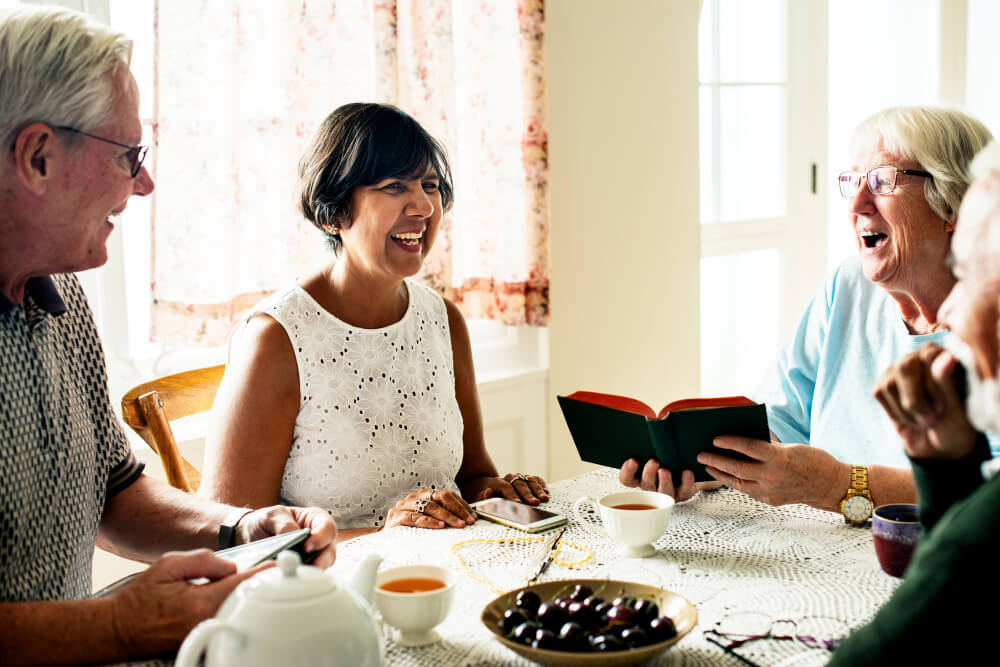“‘You shall love the Lord your God with all your heart, with all your soul, with all your mind, and with all your strength.’ 31 The second is this: ‘You shall love your neighbor as yourself.’ There is no other commandment greater than these.” – Mark 12:30-31
Not so easy, right? Steven recently asked Msgr. Stuart Swetland how to better love his neighbor. By neighbor he means, quite literally, the person who lives next-door. When he started praying for his neighbor, it was very difficult because this person “disdains” him and treats him poorly. How can Steven—and all of us—love our neighbors as Christ has instructed us?
First, Msgr. Swetland explains what love really is. “So many think love is an emotion. There is such a thing that we call love that is an emotional thing, but that’s not the love we talk about in Christian theology—the love of charity, of agape. Agape is a choice; it’s a choice to want, will, and work for the true good of the other. That’s what it means to love in the way that we’re called to love. It’s not a feeling—I may feel like loving someone and I may not feel like not loving someone and feelings don’t really matter when it comes to love; choices do.”
 This kind of love contradicts the romantic movies and music that are popular in our culture. They glorify a ‘feeling’ of love and the idea that if you stop feeling that love, then a relationship is over. “There is such a thing as romantic love that has feelings involved with it,” says Msgr. Swetland. “But let’s be honest, and I think anyone who has been married for any period of time knows, that you’re not always going to feel like loving your spouse. … You don’t fall in and out of love, you choose to quit loving or you choose to love.”
This kind of love contradicts the romantic movies and music that are popular in our culture. They glorify a ‘feeling’ of love and the idea that if you stop feeling that love, then a relationship is over. “There is such a thing as romantic love that has feelings involved with it,” says Msgr. Swetland. “But let’s be honest, and I think anyone who has been married for any period of time knows, that you’re not always going to feel like loving your spouse. … You don’t fall in and out of love, you choose to quit loving or you choose to love.”
So what does this kind of love have to do when dealing with difficult neighbors or people you encounter in everyday life? It’s a choice to love one’s neighbors (and spouse, and even enemies) and to pray for them. First, we need to make that choice and keep making that choice again and again.
Loving someone who does not reciprocate our love can be very difficult. Msgr. Swetland encourages us to recognize that when our love is not accepted our returned, we are sharing in a part of Christ’s suffering. “Sometimes love is not loved—that’s what we see every time that we look at the crucifix. Infinite love was rejected by us. Every crucifix is a reminder that love was rejected by those who chose to hate and in a way, because we’ve all chosen to sin, all of us have chosen to reject love in one way or the other.”
That doesn’t mean we stop loving another person, however. In fact, it’s just the opposite. “It means, actually, we redouble our efforts to choose to love the other even when they make themselves unlovable or they choose not to love us back or when love is difficult,” said Msgr. Swetland.
This Advent Season, let us hold fast to love—forgiving our neighbor and being charitable and kind to everyone we meet—even when love is difficult and even when they do not love us back. Let grudges cease and love be known to all. Amen.
Hear the full segment:
Tune in to Go Ask Your FatherTM weekdays at 1-2pm ET / 10-11am PT only on Relevant Radio®.

